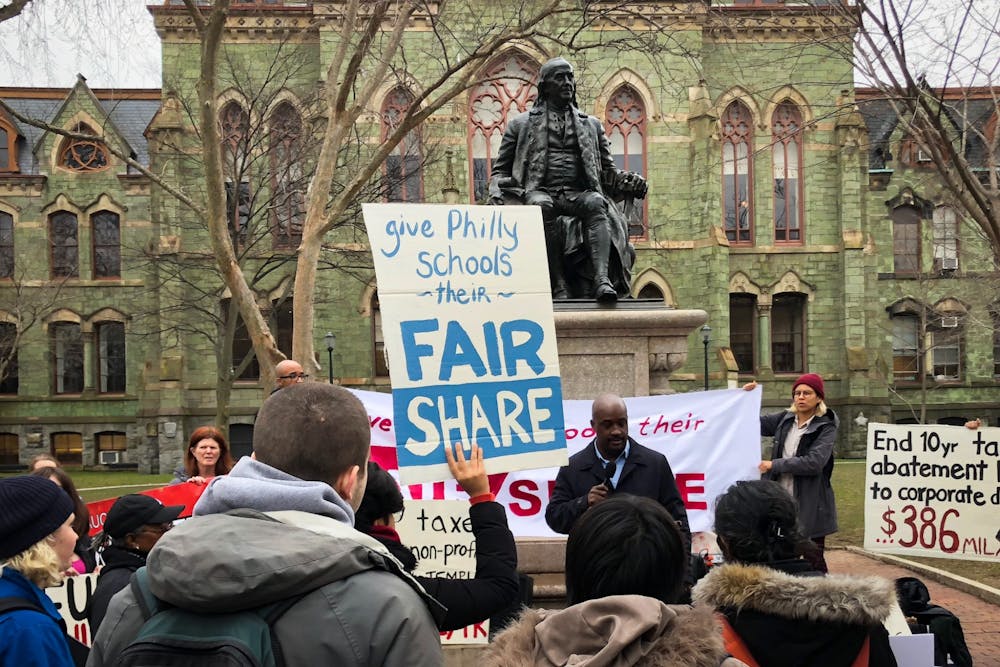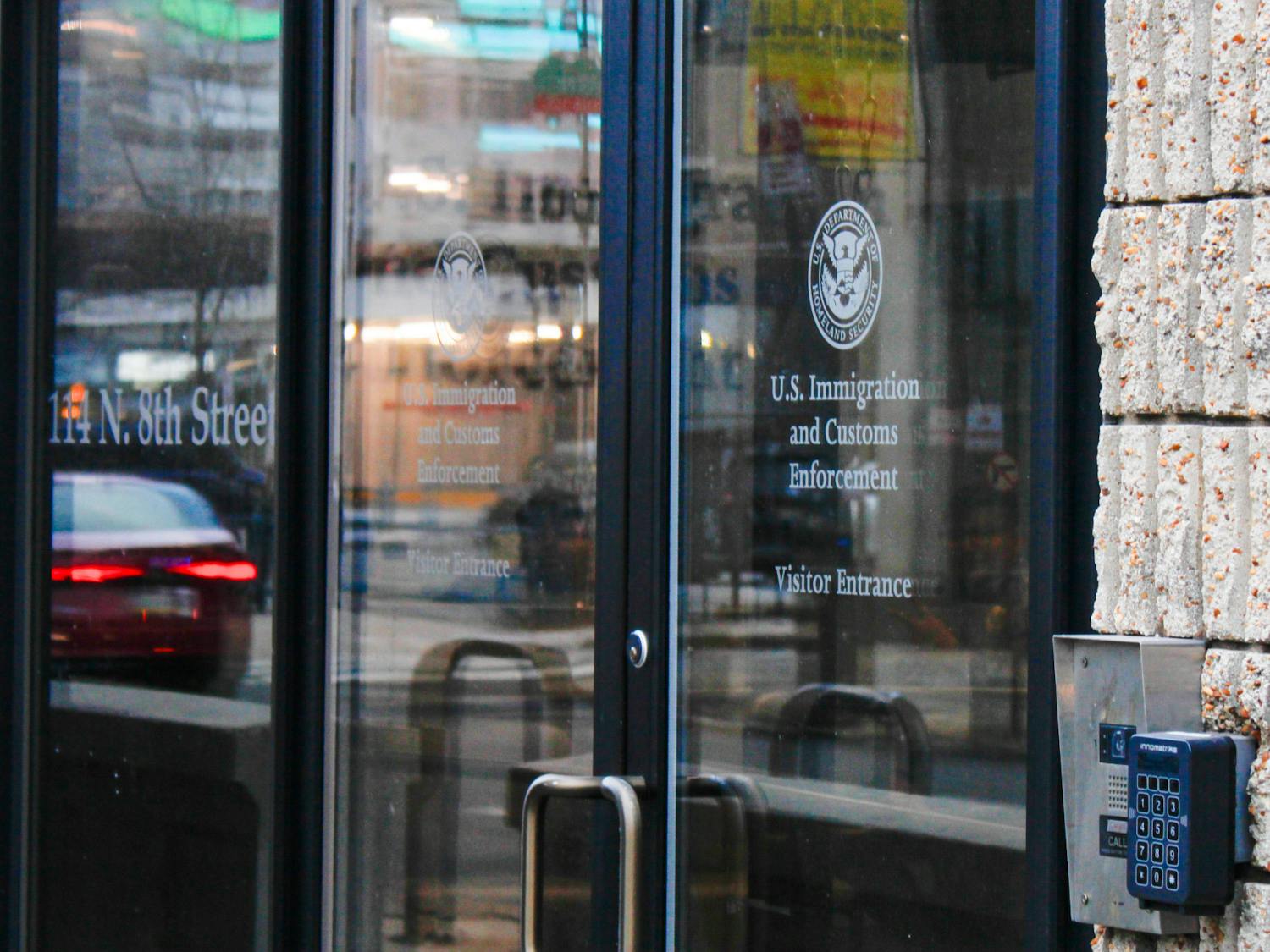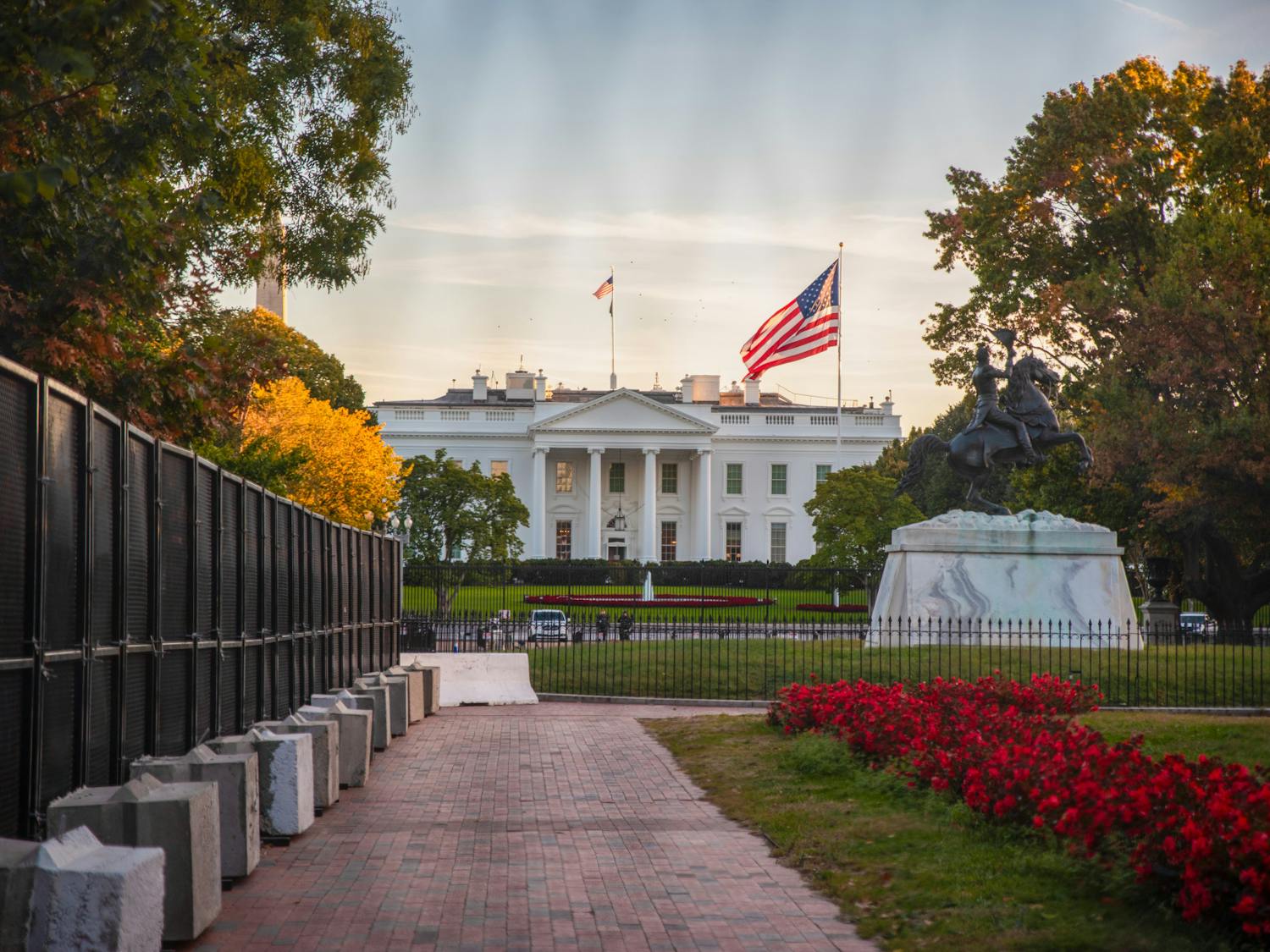More than 730 faculty and staff have signed a petition calling on Penn to pay Payments In Lieu of Taxes to the city.
The campaign, Penn for PILOTs, is the first united effort by Penn faculty and staff that demands the University pay PILOTs, voluntary financial payments that property tax-exempt organizations make to local governments.
Because Penn is a non-profit, it does not have to pay property taxes to the city of Philadelphia, which is currently projecting job losses and significant budget cuts to its public school system due to the ongoing coronavirus pandemic.
The petition calls on Penn to resume its payments of PILOTs — which it previously paid to the city from 1995 to 2000 — and proposes that these payments go towards an Educational Equity Fund governed by the city and the School District of Philadelphia.
The campaign used a model created by Philadelphia Jobs With Justice, a coalition of labor unions and student, community, and faith groups, that argues that Penn and other large non-profits should pay 40% of what they would pay in property taxes in a given year. Penn for PILOTs calculated that under this model, Penn should have paid $36.4 million, or 0.3% of its $12.2 billion endowment in the 2016-2017 school year.
Under Penn for PILOTs’ proposal, the University’s payments would fund Philadelphia’s public schools. The district estimates a deficit of over $700 million by 2025, The Philadelphia Inquirer reported. Even before the pandemic, investigations found asbestos and lead in several Philadelphia public schools, which the School District estimated would take $125 million to remove.
History professor Amy Offner said she began working on the campaign with a group of colleagues approximately one month ago. Faculty and staff who crafted the petition began sharing it with their colleagues, Offner said, who then invited others to sign it. The petition currently has 733 signatures from faculty from all 12 schools and staff from across the University.
“What was clear was that there was an enormous reservoir of support for PILOTs that already existed, and had never been given voice among faculty and staff,” Offner said.
RELATED:
Penn’s history of refusing to pay PILOTs, explained
Penn spent millions lobbying for education, healthcare, research funding in last decade

A student's sign at a 2015 City Council meeting, demanding Penn to pay PILOTs.
Past movements for Penn to pay PILOTs have been largely student-led. In 2015, the Student Labor Action Project marched through campus to urge the University to pay PILOTs, and in 2018, students interrupted a University Council meeting to demand that Penn pay PILOTs.
“Faculty and staff have largely been absent from past calls for PILOTs at Penn, but that's not because faculty and staff didn't feel strongly about it - it's because we hadn't organized ourselves,” Offner said.
Offner said the petition is a first step for the Penn for PILOTs campaign, and said they plan to meet with Board of Trustees Chair David Cohen.
Religious studies assistant professor Jolyon Thomas, who was also involved in organizing the petition, said he had been interested in the issue of PILOTs since his time as a teacher before he became a professor. He said, however, the recent national reckoning about systemic racism and violence against Black Americans gave this issue more urgency.
“A cop kneeling on a man's neck for nearly nine minutes, that really hits us in the chest, but I think we should be really thinking about the ways that a child’s future is robbed of him because he's exposed to lead in his school. That's an equal sort of violence, and it's something that I would say Penn is complicit in,” Thomas said. “As long as we're not paying our fair share to the city of Philadelphia, we're engaging in this sort of ongoing quotidian systemic violence.”
Thomas believes Penn's current responses to the national moment have been insufficient. On June 4, Penn President Amy Gutmann announced the establishment of a $2 million fund called the Penn Projects for Progress, which will support pilot projects that seek to address various social issues and inequities.
“If we're really serious about doing these sorts of things, then we need to put our money, literally, where our mouth is and just say, okay, Philadelphia, we recognize you've subsidized us for years in the form of tax exemption. Now we're going to pay this back not only this year, but every year going forward,” Thomas said.
Thomas said that if the University continues to not pay PILOTs, he hopes the Philadelphia City Council will pressure the University to do so. He said that the City Council has the authority to determine whether non-profits are considered tax-exempt charities, and could revoke Penn’s tax-exempt status to require that the University pay property taxes.
Anthropology professor Nikhil Anand, who signed the petition after being approached by a colleague about it, said he feels the COVID-19 pandemic and the ensuing budget crisis make this a critical time for Penn to make a financial commitment to the city, and particularly to the School District of Philadelphia.
“We might think this is not the right time, and there’s financial difficulty given what's happening with the pandemic. Maybe we can find that it’s precisely this time that we need to step up and deliver a set of practices and commitments to Philadelphia,” Anand said.









